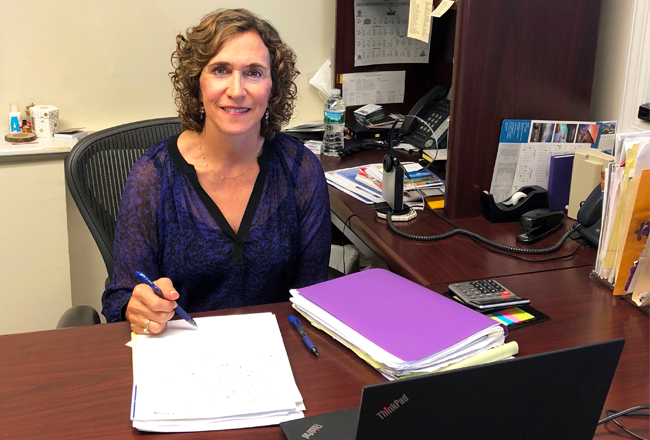Responding to the spiraling costs of employee health care plans for businesses, Connecticut Chamber of Commerce executives and their health insurance marketing partner Chamber Insurance Trust are meeting with and surveying chamber members across the state as first steps in a collective effort to better navigate a changing health care marketplace.
“The number one cost of doing business today is the cost of health insurance,” said JoAnn Ryan, president of Connecticut”™s Chambers of Commerce Leadership Council and president of the Northwest Chamber of Commerce in Torrington. “And it”™s been that way for a number of years.”
 Chamber executives cited a Kaiser Family Foundation report that found the health insurance cost per employee in Connecticut averaged more than $6,545 in 2016, the fifth highest in the continental U.S.
Chamber executives cited a Kaiser Family Foundation report that found the health insurance cost per employee in Connecticut averaged more than $6,545 in 2016, the fifth highest in the continental U.S.
In addition, the Connecticut Insurance Department recently approved an average 31.7 percent rate increase on the policies Anthem offers individuals next year, both on and off Access Health CT, the state health insurance exchange. The department also approved an average rate increase of 25.4 percent for Anthem small-group policies bought by Connecticut businesses and nonprofits.
Ryan noted that the more than 65 chambers of commerce in the state, which service tens of thousands of members, are operating cooperatively with six regional Chamber Benefit Centers. Each chamber will certify selected insurance agent members as chamber health care navigators, who will provide detailed training to address the changes in the health care marketplace and outline possible new solutions.
The first multichamber meeting was held in September at the Manchester Chamber of Commerce, with Tolland County Chamber of Commerce Executive Director Candice Corcione helping to organize the event.
“Businesses in our 13 communities are practically shouting from the rooftops about the increasing health care costs,” Corcione said. “As a chamber executive, my number- one responsibility is to help our region”™s companies address their problems.”
“The rising costs of health care have become a priority,” she added. “Working together, we have the tools and member power to make a difference, and we will.”
Companies met with officials at the Northwest Connecticut Chamber of Commerce in Torrington on Sept. 27. Orientation events for the Danbury and Middlesex chambers will be held on Oct. 11, while the chamber orientation event on the Fairfield County coast will be hosted by the Norwalk Chamber and Benefit Center on Oct. 19. Additional chambers across Connecticut will announce their events soon, said Chamber Insurance Trust
CEO Stephen Glick.
In their dealings with insurance carriers and employee group plans, “Most employers lost control of the process,” Glick said. “There”™s no transparency whatsoever.”
While that has not necessarily been an obstacle for large companies, it is the middle-market firms, defined as those with 20 to 500 employees, who have lost control of their ability to contain costs, Glick said.
While the federal and state governments can help, continuing to simply wait for them to act is no longer an option, he said. Solutions like low-cost supplemental insurance can allow an employer to have a more affordable, higher-deductible plan but still protect employees, he said.
“The only way a middle-market company can contain health care costs is by taking control of the expenses,” said Glick. “Companies need to pay less for the insurance plan”™s administration, marketing and profits. They need to reduce claims through management and wellness, better manage the drug benefit, and a have a health plan designed for their unique company.”
“The idea of managing your health care costs once a year at rate renewal is over,”
he added.
The chamber and CIT are launching the Connecticut Health Care Response Survey this month to gather further business feedback and data throughout the state. Questions were still being finalized, Glick said, but the survey would include demographic and geographic data in addition to serving as another venue to express concerns and possible solutions.
Ryan said anecdotal information indicates that many middle-market companies are forgoing investment, reducing or putting off new employment and seeking outsourcing solutions, both out of state and overseas, to address the health care cost conundrum. “Our survey will provide companies direct input and give us the data we need to better educate ourselves, our board members and community stakeholders on the immediate needs of the companies,” she said.
Glick said he expected to drill down to smaller companies ”” those with less than 20 employees ”” over the coming months.
“Our chambers of commerce have a lot of clout and we will work together to make something positive happen in Connecticut,” he said.





















